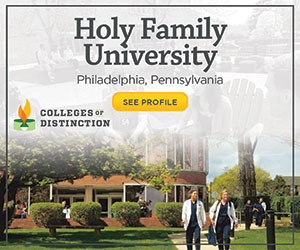Jobs You Never Knew You Wanted
How would you like to get paid for collecting artifacts, eating chocolate all day, or translating communications? Hard as it may be for many of us to believe, jobs such as these really do exist!
Looking past traditional professions could require extra research and patience, but finding a unique job that perfectly fits your interests and skills may provide financial security, job stability, and a joyful professional life. Below are some nontraditional careers that may be of interest to you. Although this is by no means an exhaustive list of options, it’s a good start. Using various platforms to research (see resources at the end of the article), you can continue to delve into the world of not-so-normal career choices.
Interpreter/Translator
A perfect example of a unique job would be a career as an interpreter/translator, a position that requires knowledge of languages and cultures. CareerBuilder defines this profession as the ability to “convert information from one language to another.” This occupation requires fluency in English and at least one other language. Most professionals in this field have a bachelor’s degree; while many major in a foreign language to pursue this career path, it is not absolutely necessary to do so if you are already fluent in English and a foreign language. Students interested in this career should take advantage of study abroad opportunities to learn about other cultures. Interpreters work with the spoken language while translators focus on the written word. According to the Bureau of Labor Statistics (BLS), employment for interpreters and translators is projected to grow 29 percent from 2014 to 2024, which is much faster than the average for all occupations.
Genetic Counselor
According to the National Society of Genetic Counselors, “genetic counseling is the process of helping people understand and adapt to the medical, psychological, and familial implications of genetic contributions to disease.” Job seekers typically need a master’s degree in genetic counseling or genetics for an entry-level position; many states also require a certification. Successful professionals are typically compassionate and extremely articulate. Job shadowing and crisis counseling experience will help prepare students for graduate coursework. The BLS estimates that there will be a 29% increase in job growth for this specialty. With the enormous impact genetic counselors can make, this is certainly not a run-of-the-mill career.
Air Traffic Controller
Another not-so-ordinary job is the position of air traffic controller. With thousands of professional air traffic controllers retiring each year (30% are eligible for retirement according to CNN Money), who is replacing them? With an average salary in excess of six-figures, we can see some definite benefits of filling these vacancies. Although this field has been known for burn-out and stress, an individual with a knack for calmly tackling high-anxiety situations may be the perfect person for the job. Other necessary traits for air traffic controllers are critical thinking and problem-solving skills along with sound judgment and decision-making abilities. Education for this career ranges from vocational schools to an associate’s degree with related on-the-job experience. Additionally, a solid foundation in various computer software programs will benefit professionals in this field.
Historian/Archivist
Do you know a bizarre amount of information about important (and not so important) historical events, but have no desire to be a history teacher or professor? Becoming a historian or an archivist could be an intriguing path for you to explore. To the outsider, the difference between these professions may not be clear, but there is a distinct difference. An archivist performs the duties of creating, collecting, cataloging, and organizing while a historian writes the material about historical events. Employees in this field typically earn degrees in History or Library Science. The archivist at Immaculata University provides access to campus documents, artifacts, and treasures and maintains those items for exploration and research. “Working in the Archives of Immaculata University provides me with opportunities to unearth the treasures of the past and share them with the university family,” stated Sister Anne Marie Burton, IHM, Ed.D., Gabriele Library Archives. “Access to historical information provides a way to research and thereby answer questions about the history of the institution.”
Funeral Service Worker
While it may not be a glamorous profession, funeral service workers are incredibly essential to all communities. Individuals in this industry organize and manage the details of a funeral. According to the BLS, with the aging population, the profession of funeral service workers, including licensed funeral directors and embalmers, is projected to increase by 5%. Ideal candidates possess active listening skills and acute social perceptiveness. Related job experience is essential to pursuing this profession; an associate’s degree is also typical for funeral service workers.
Food Scientist
Our final featured profession sounds like a taste of heaven (pun-intended). A food scientist, otherwise known as a taste-tester, is a person who further analyzes the properties of food: biological, physical, or chemical. According to Business Insider, this position typically requires a bachelor’s degree in the life sciences to get started with additional training for those who want to specialize. It may be beneficial for students to be involved in an environmental or agricultural club.
Other Options
In addition, Heidi Harrison, assistant director/employer relations for the Office of Career & Professional Development at Immaculata University, suggests that graduates consider exploring lucrative government jobs. She also recommends looking into fulfilling “green collar” jobs; these jobs help to improve the environment and lessen the destructive impact on the planet.
Researching Nontraditional Professions
Still wanting to know more? For additional resources to help you find the perfect job, visit O*NET OnLine and Career Shift. You should also be sure to utilize the career development professionals at your college or university. Additionally, conducting an informational interview with an individual who is established in a career you are interested in is a wonderful way to get an honest, behind-the-scenes look at a possible career choice. Finally, job-shadowing is a fantastic way to learn more about different job prospects.
When considering a career, it is easy to feel like your choices are limited. The exciting news is, if you do a little digging, they don’t have to be. Who knows? In five years, you could be at a dinner party with college friends who have taken a traditional career path, telling stories about your intriguing and one-of-a-kind job. The personal satisfaction of “bucking the trend” could be enticing to young professionals entering the workforce or older workers who are looking for a change.
Immaculata University |
IMMACULATA, PENNSYLVANIA |
| Immaculata University is a Catholic, coeducational institution of higher education sponsored by the Sisters, Servants of the Immaculate Heart of Mary. Its programs are rooted in academic rigor, ethical integrity, and Christian core values—encouraging students to pursue lives full of learning and professional excellence. With a belief in the dignity and potential of all, Immaculata integrates its students into a community of service that empowers them to assume meaningful roles in this diverse and changing world. Contributing to the development of the whole self, Immaculata affirms a liberal education as an integrative process in the formation of a truly educated person. |






